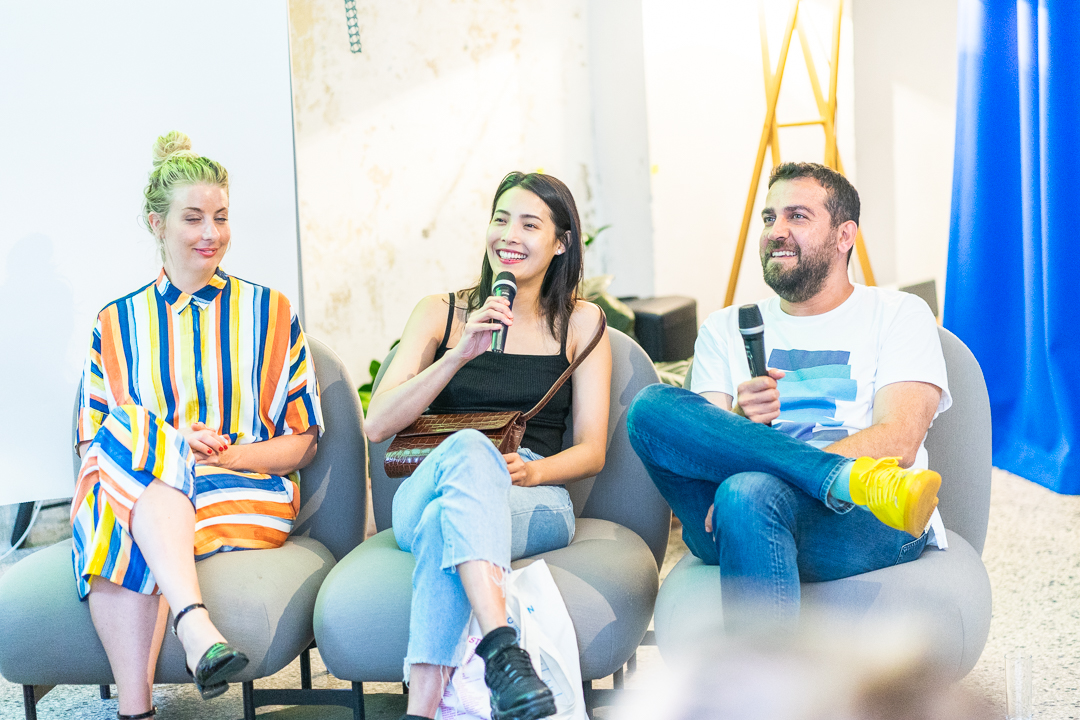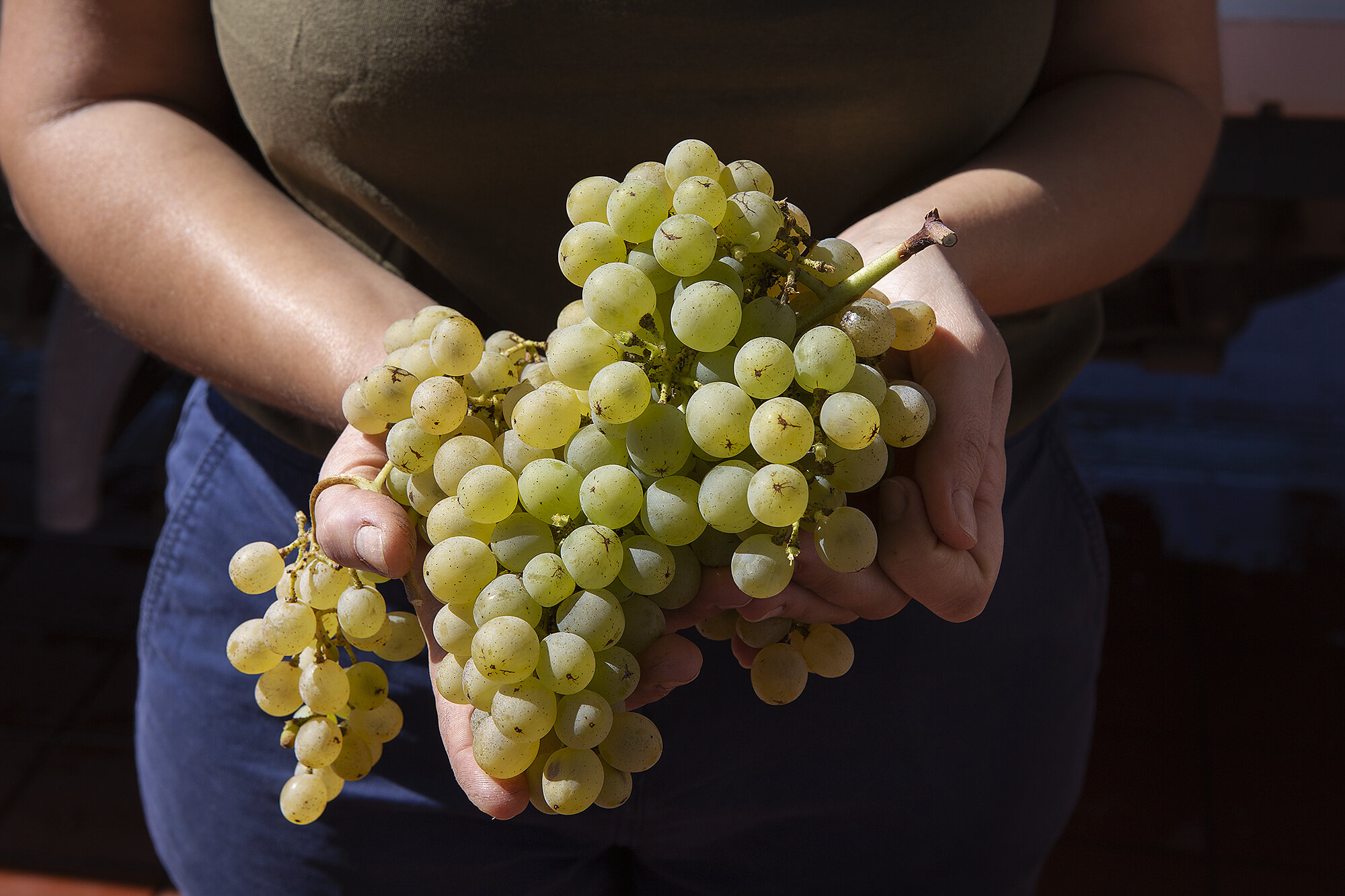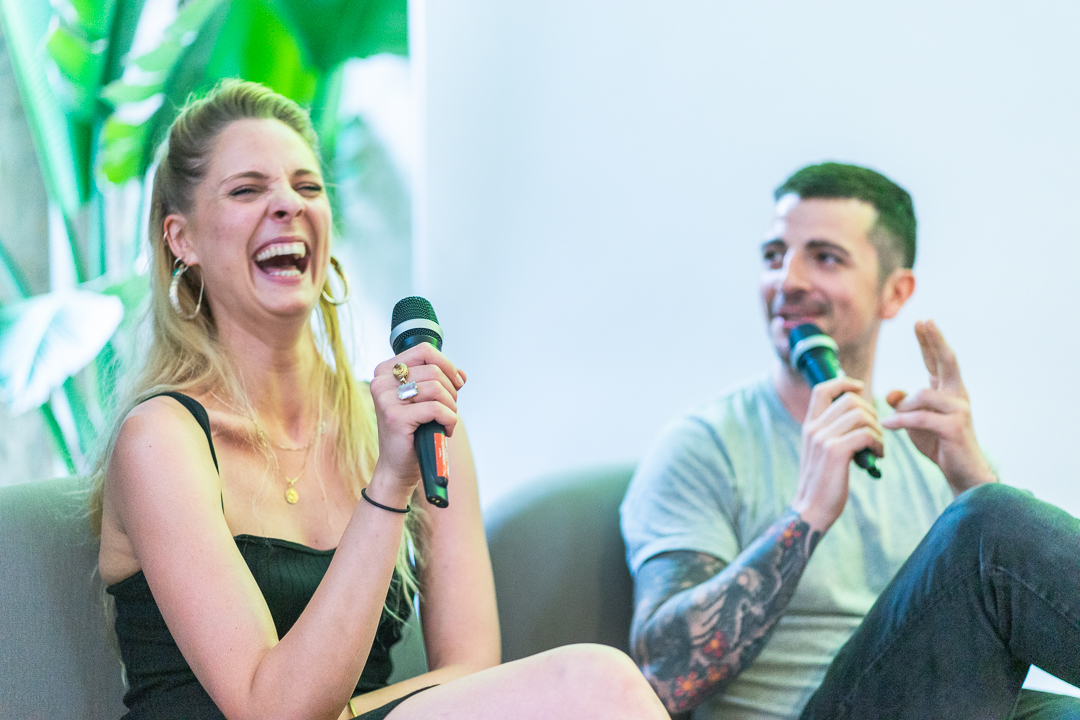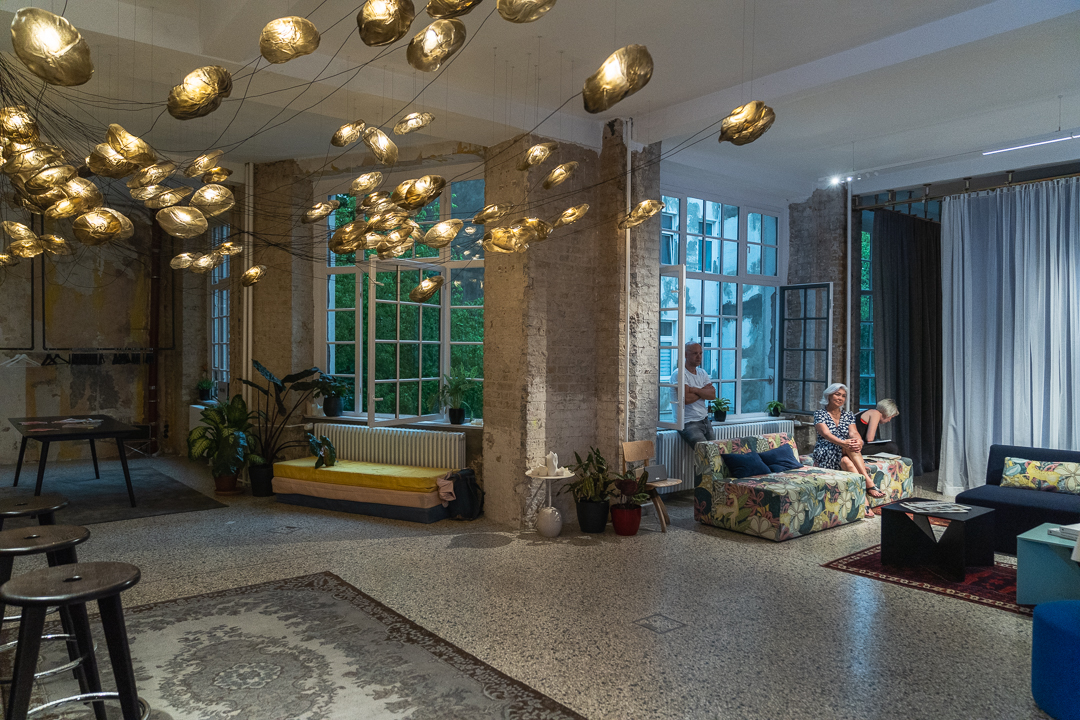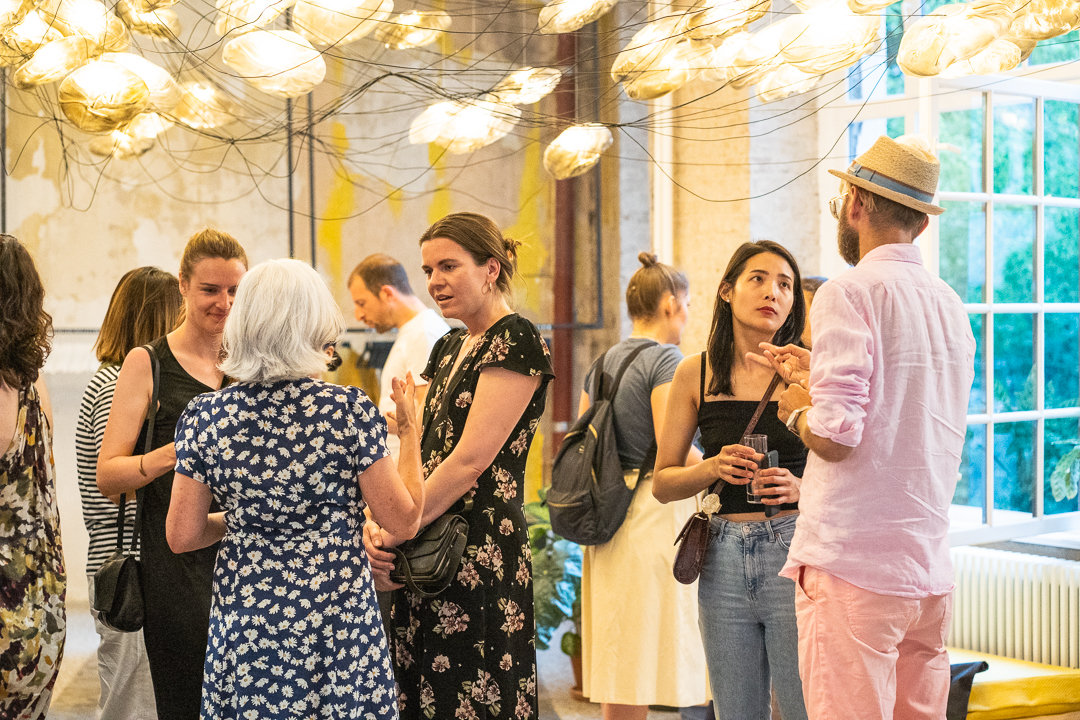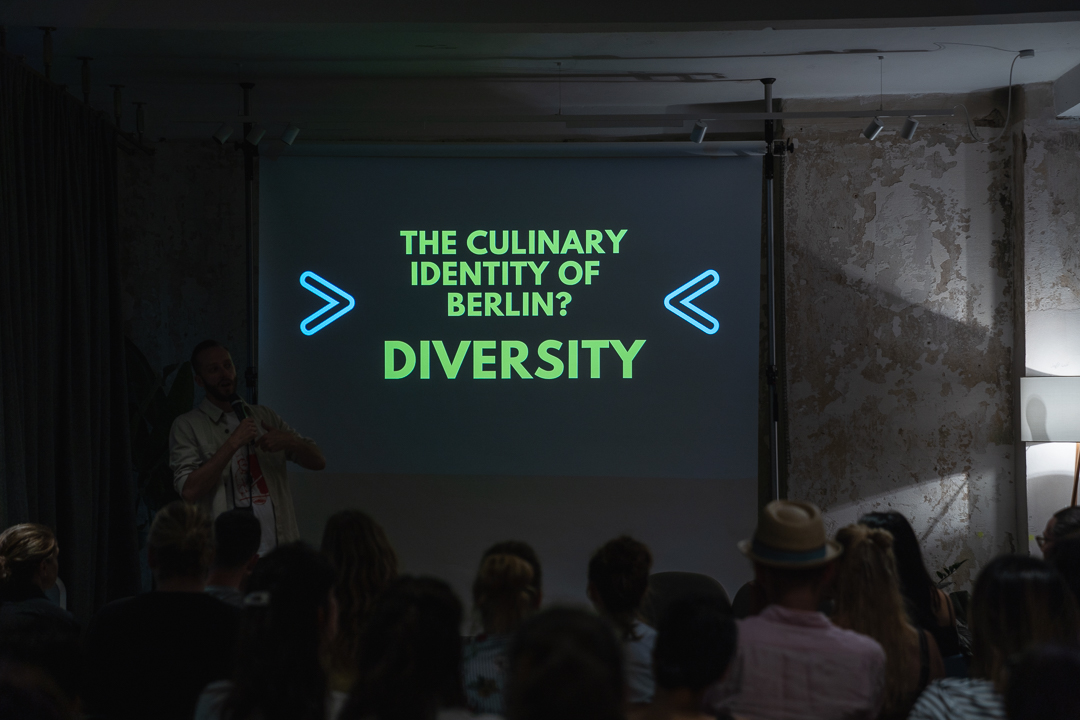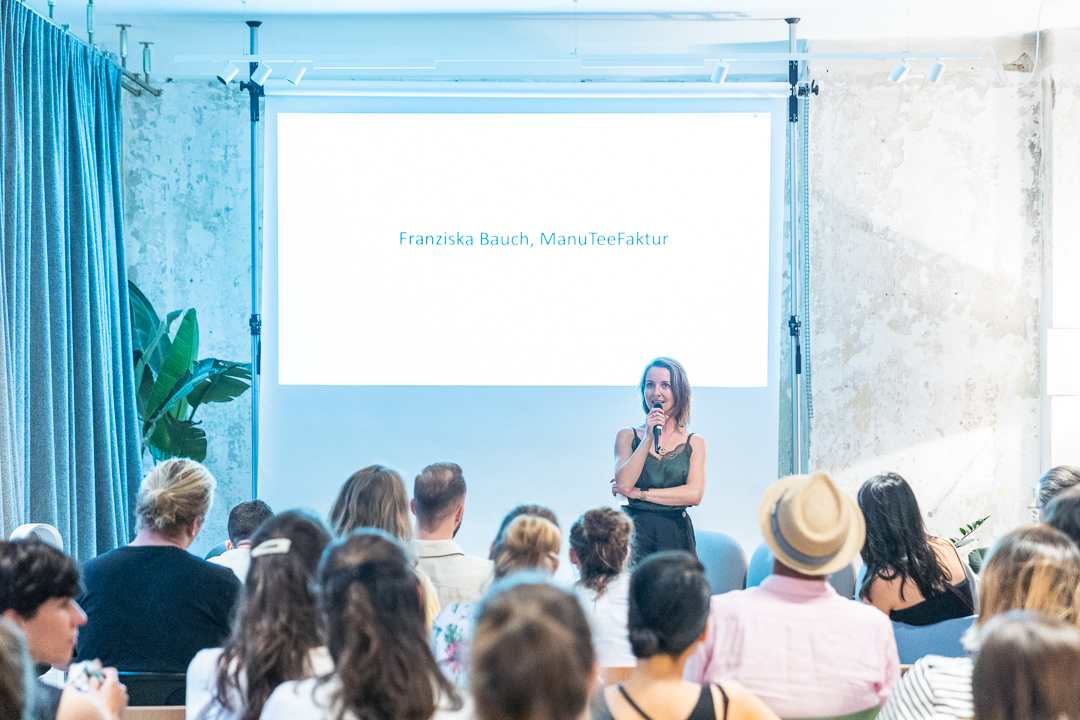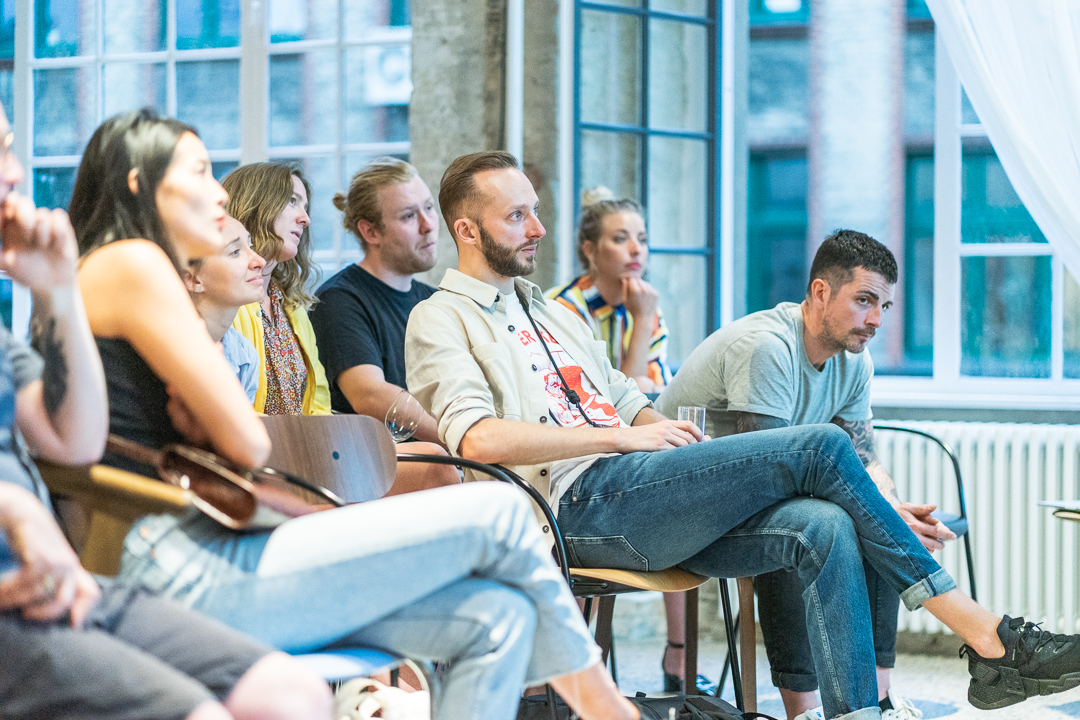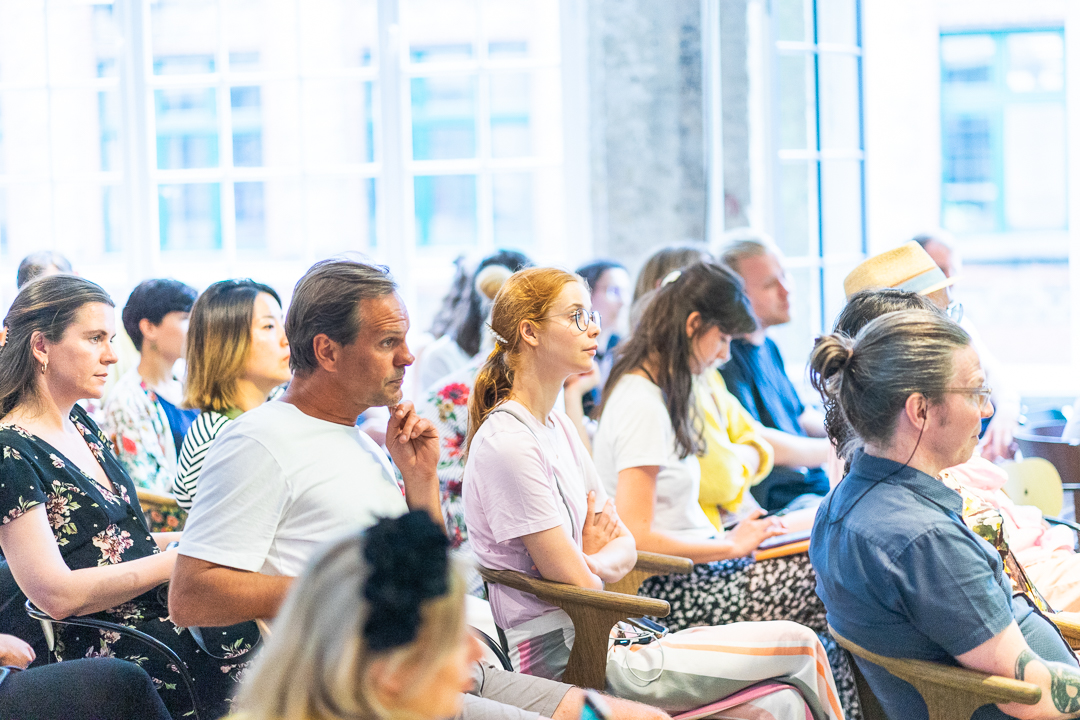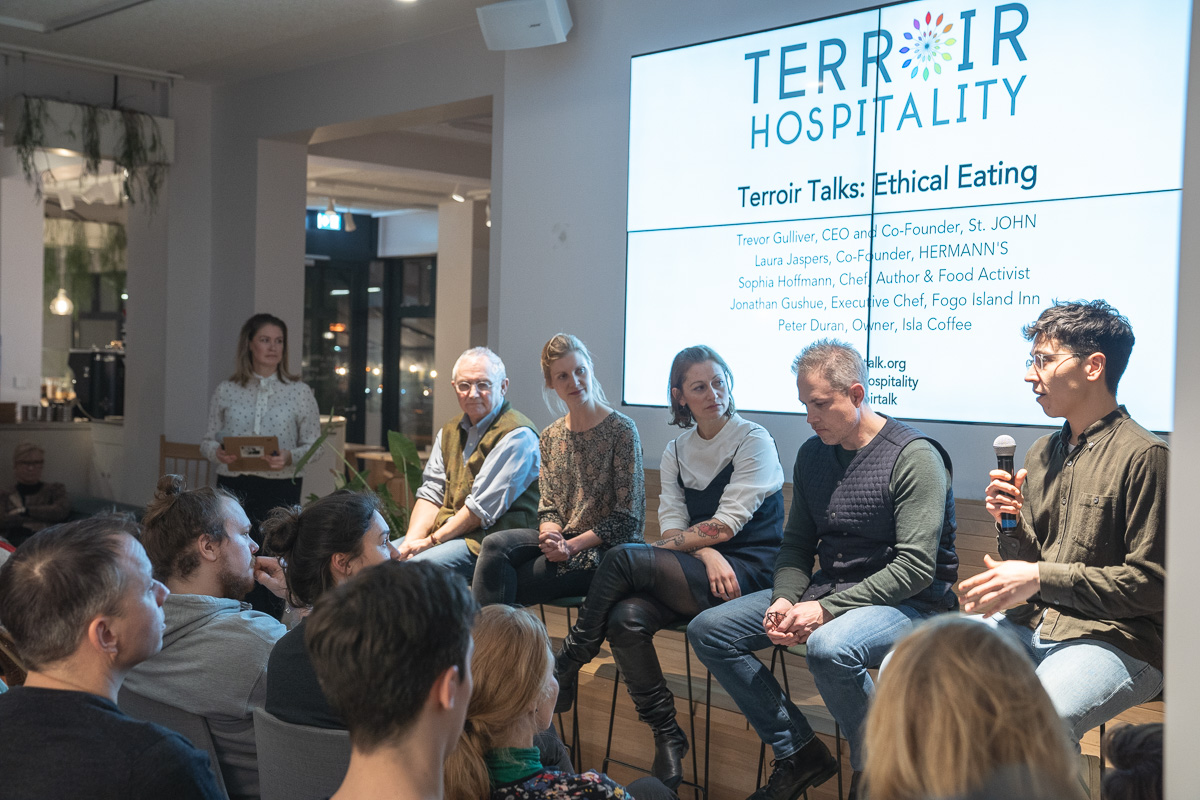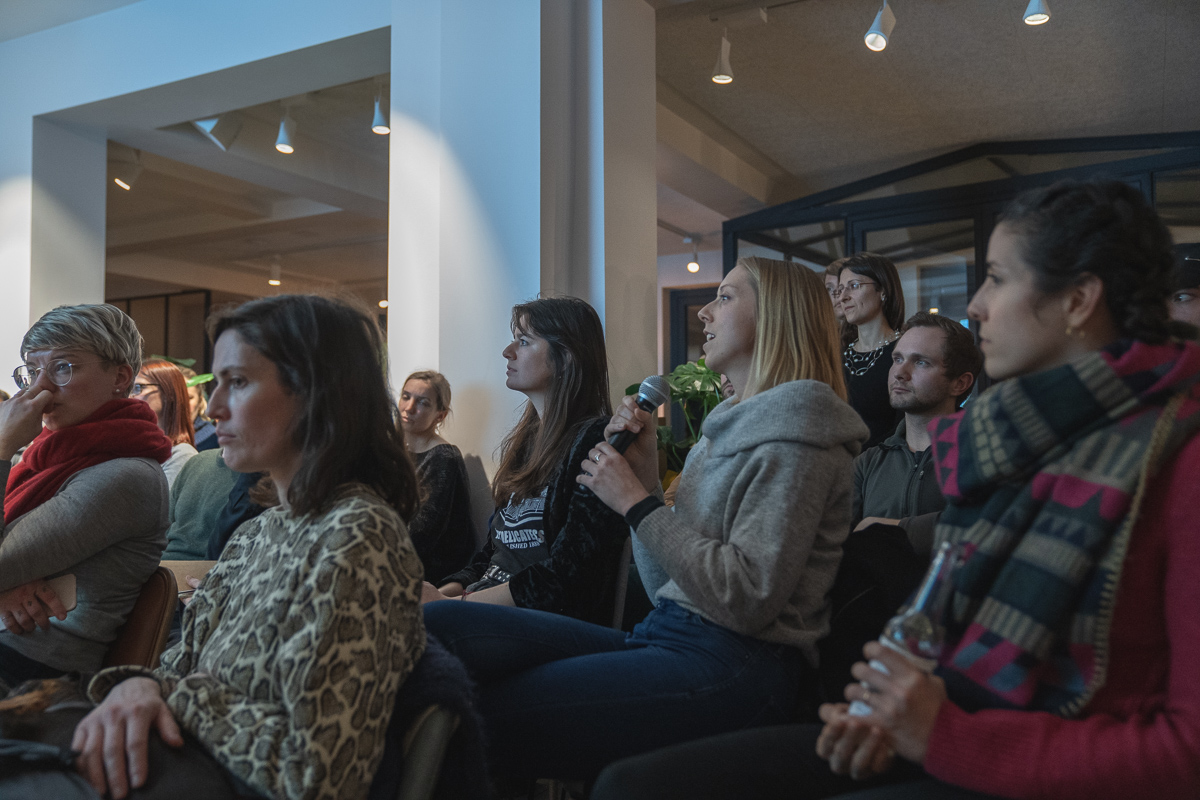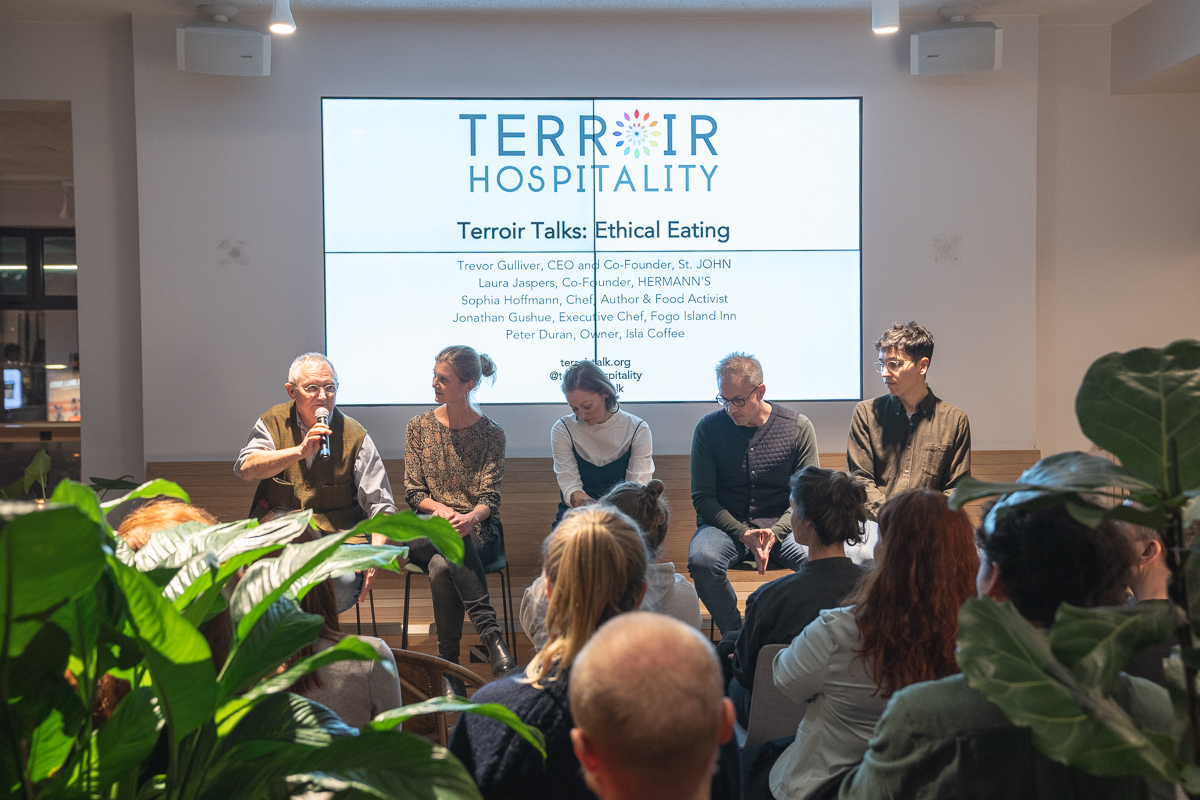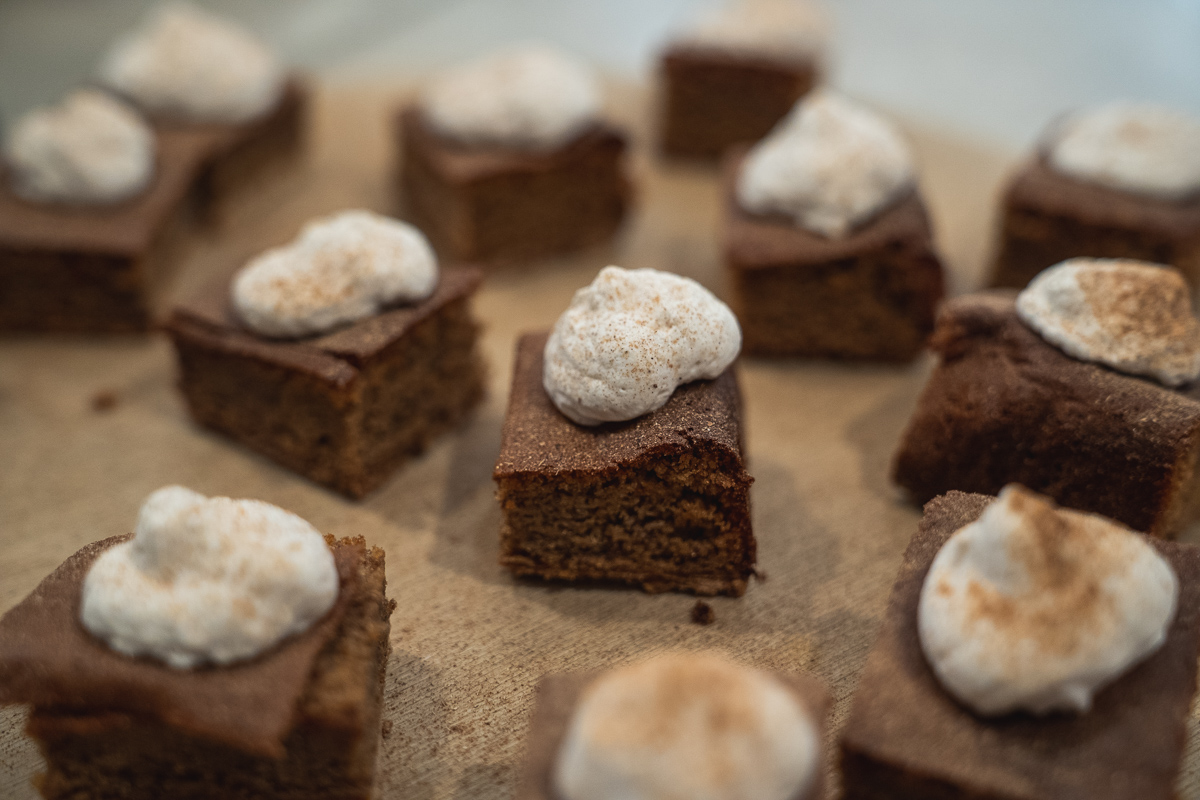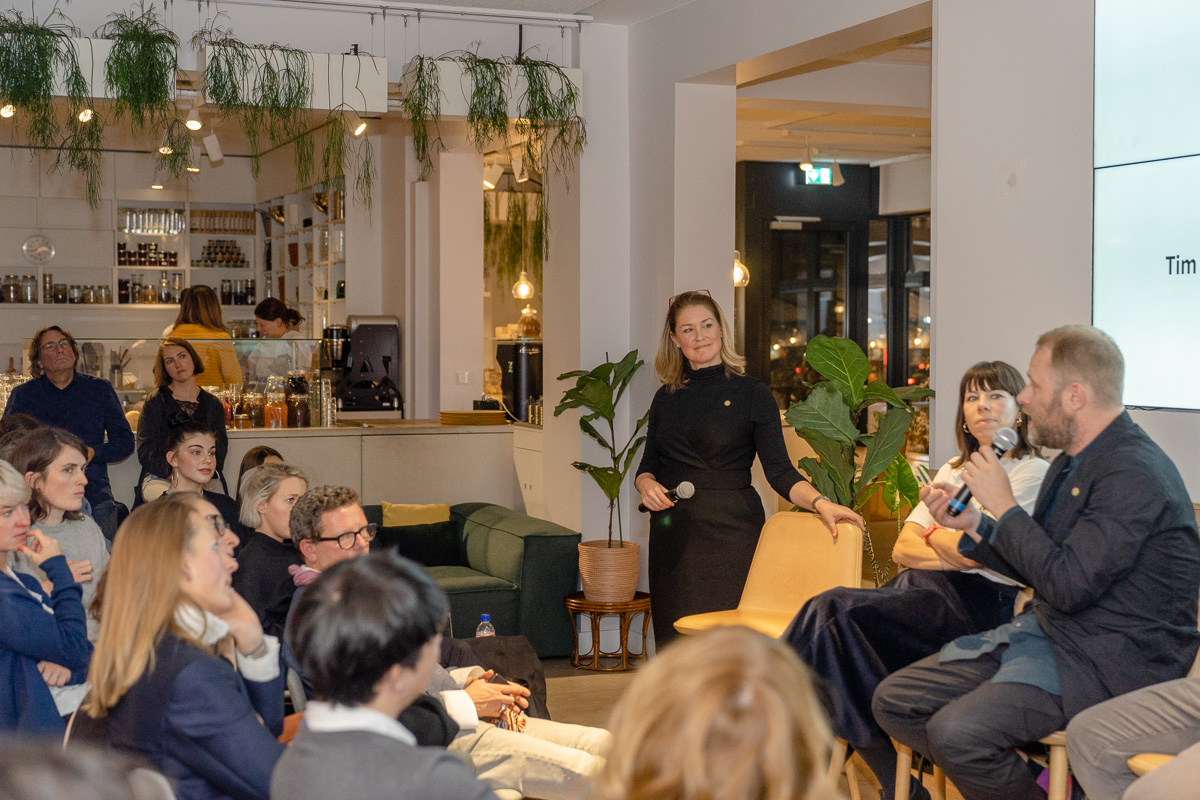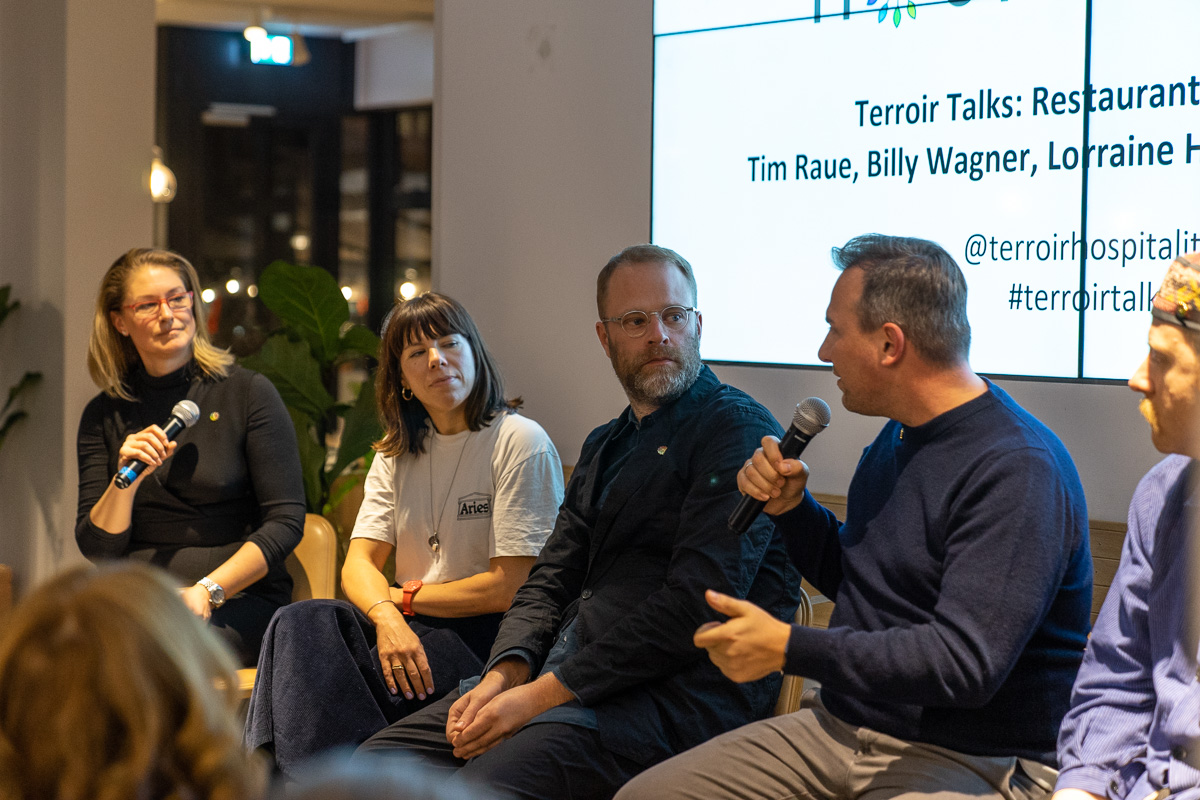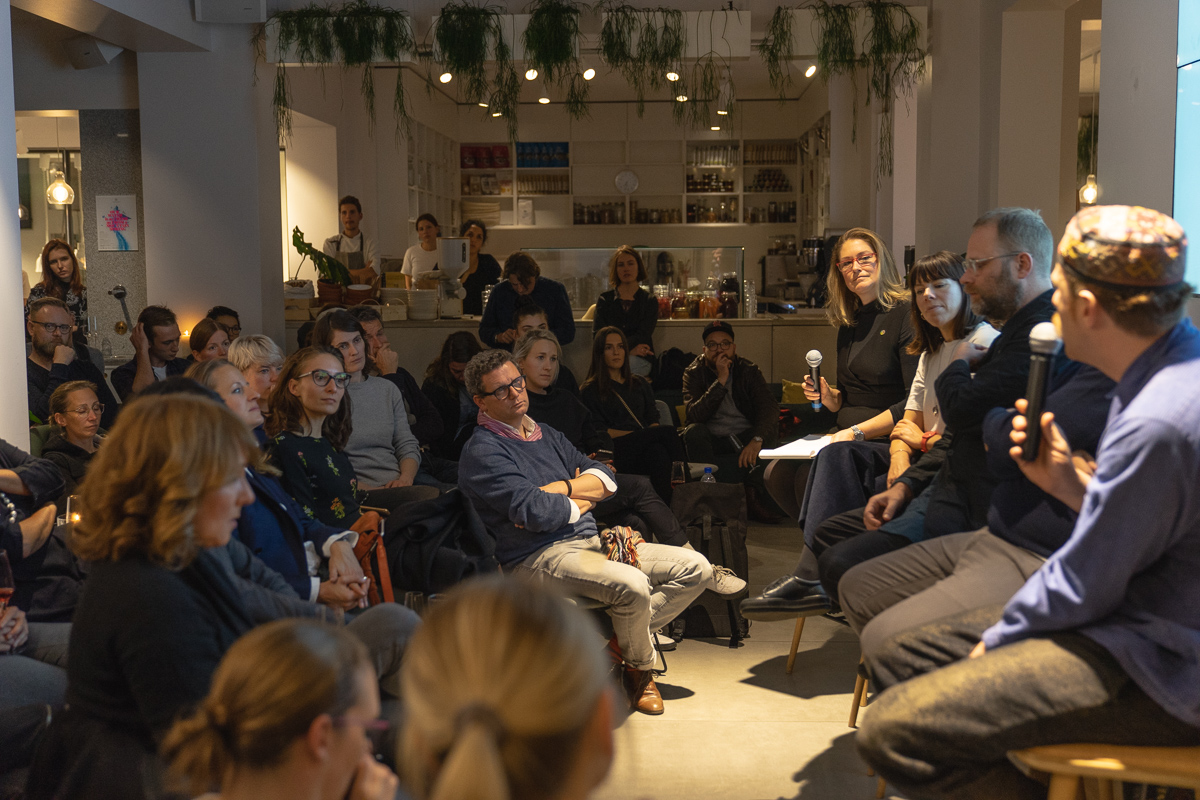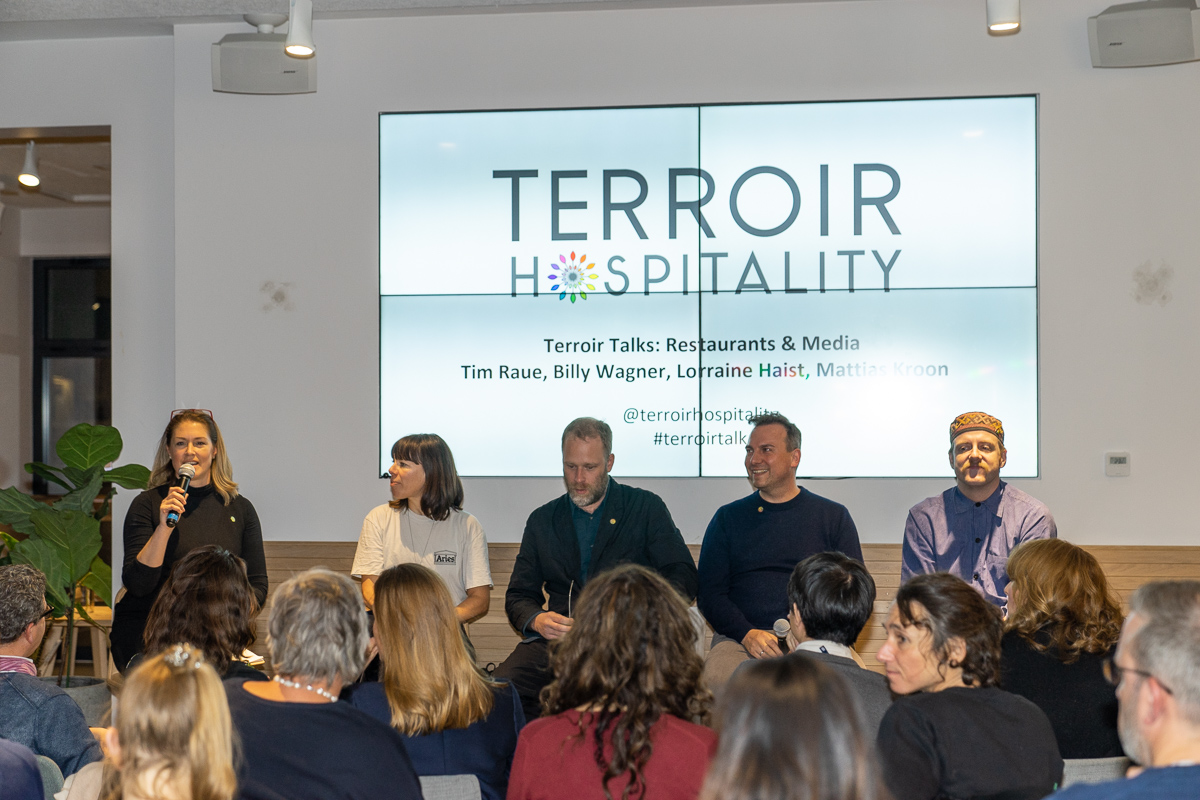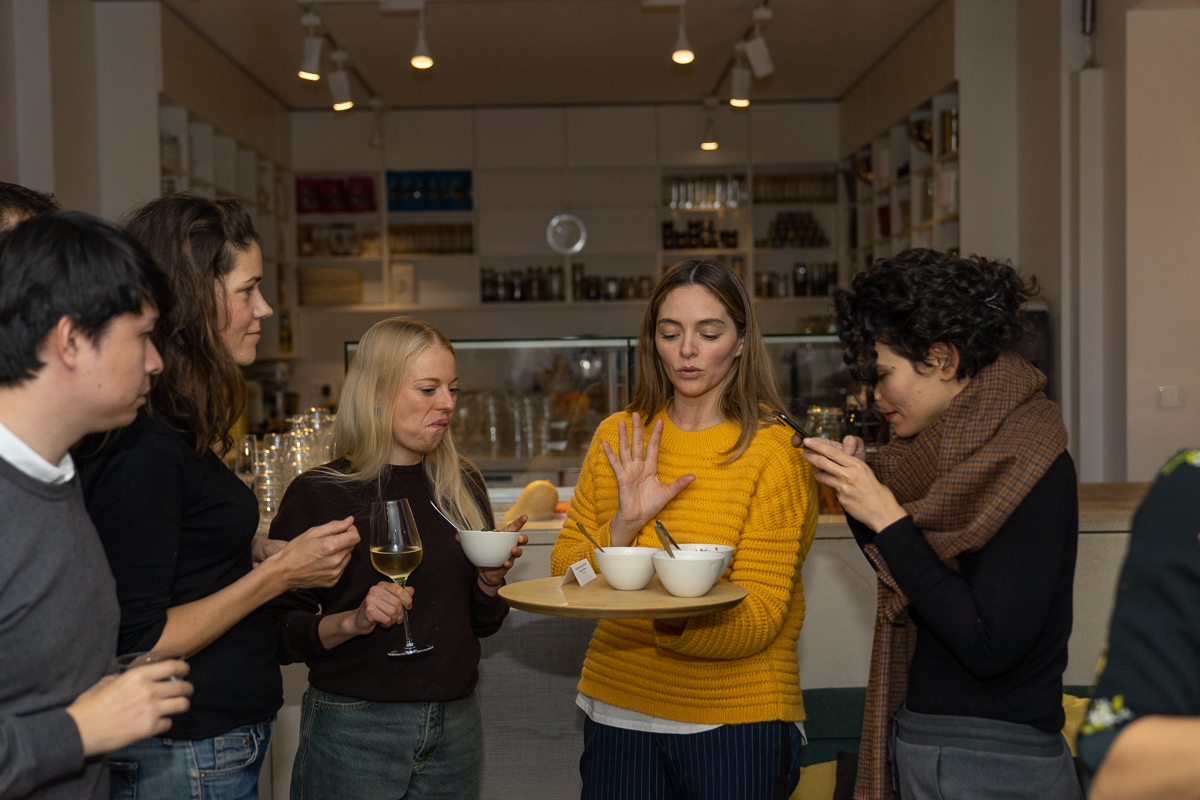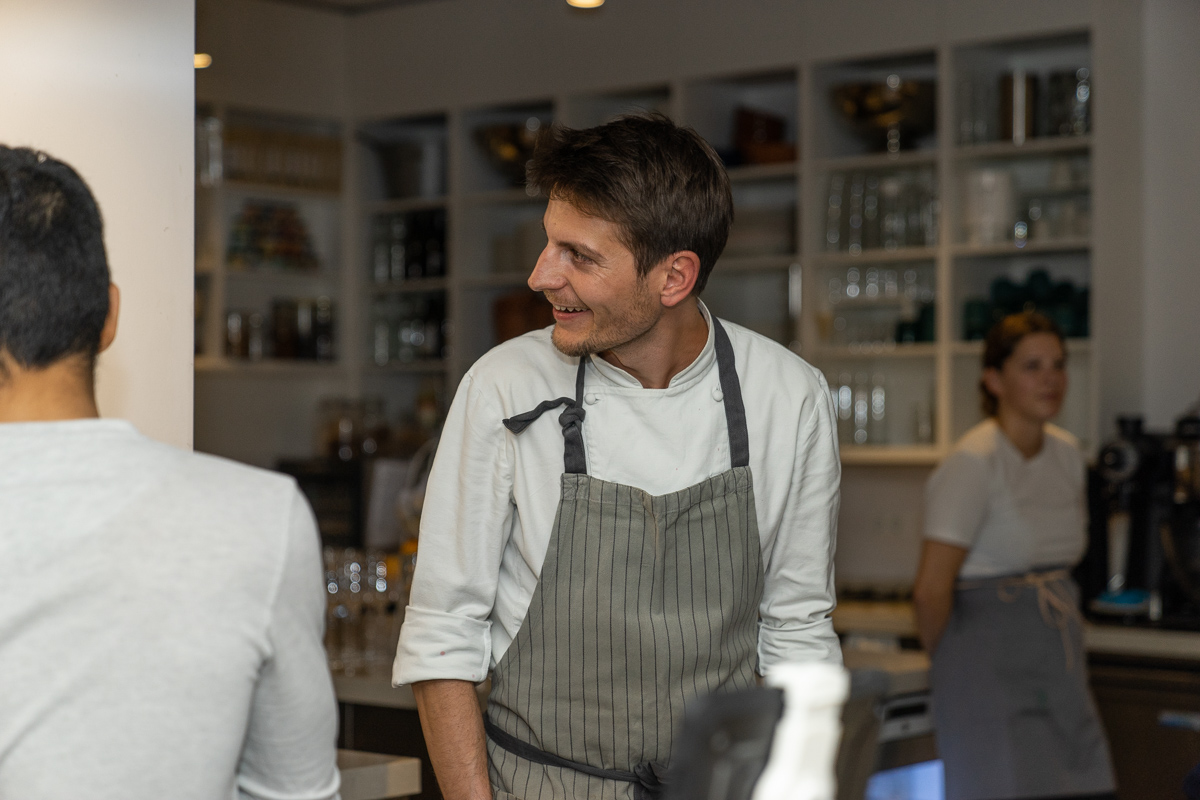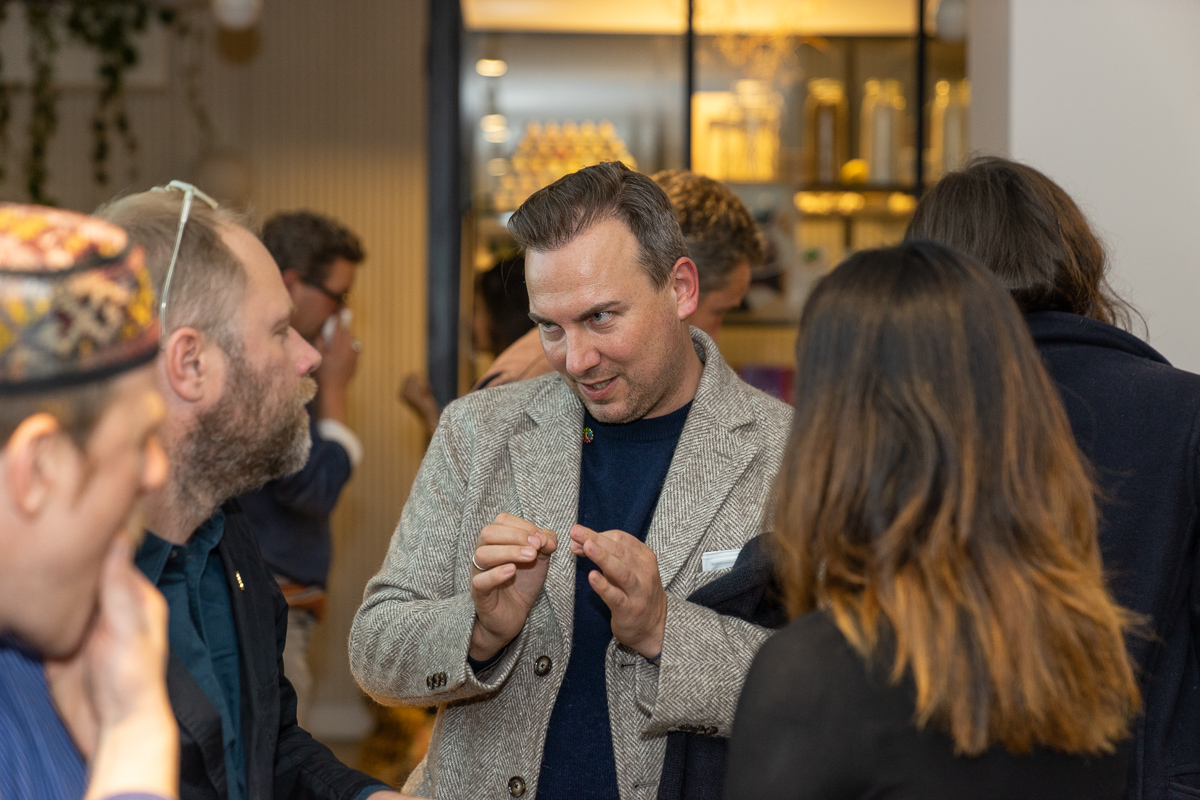Fair Wage and Recalibrating Restaurants
May 11th, 2021
Regenerative Farming
April 13th, 2021
Conscientious Consumption
March 30th, 2021
Food & Migration
March 16th, 2021
The Mediterranean Diet
February 16th, 2021
Where Can you Work in the World of Food?
March 2nd, 2021
Terroir Talks: How to Hanukkah
“Maybe we took this, maybe we gave that - I don’t know; but it’s a food we all have in common”
“There is no original Hanukka food - there is no definition of what we’re supposed to eat!”
Hanukkah, or the 'festival of lights' is a Jewish tradition honouring the re-dedication of the Second Temple in Jerusalem.
It’s also an eight-day celebration of festivities and deliciousness with a custom of eating fried foods to commemorate the occasion's very special connection to olive oil. Tradition claims that thanks to a miracle it was possible to keep the candles burning during the original eight day vigil and these days, latkes, fritters and jelly-filled doughnuts are just some of the foods eaten in memory of this.
To delve deeper into the foods and the facts, we invited Jewish food experts and historians to Berlin to talk us through Hanukkah history, traditions and comparisons with other European food cultures.
Panellists
Monday December 9th, hosted at HERMANN’S, Berlin
Laurel Kratochvila, Fine Bagels, Berlin
Ben Zviel, Mrs Robinson's, Berlin
Ronit Vered, Journalist, Haaretz.com, Tel Aviv
Itay Novik, Elements of food, Berlin
“Food used to be for survival but I think the modern interpretation of Hanukkah really romanticises that to be something else.”
“I’m not cooking Isreali food, I’m cooking my own terroir. I’m cooking the ingredients of where I live and have lived.”
Terroir Talks: PR strategies explained by experts
“A restaurant is a chef’s personal vision and an insight into how they think the world should look”
“‘PR is moving online because it performs much better there and we’re living in a world of data”
“Stories are in the dishes, the spices and the design and they connect you - they’re huge”
The world of PR has become substantially more influential in creating a public face for the world's top chefs and restaurants, but it doesn’t happen without a strategy.
Public relations is about managing a communication process that naturally builds a relationship between an organization (or an individual) and their public. It’s all about who you know, having a great story and making sure it’s being told to the right people. We invited a panel of star makers to Berlin, responsible for building the brands of some of Europe’s best chefs, to share insights on how you we can all improve our PR game.
Panellists
Monday November 4th, hosted at HERMANN’S, Berlin
Virginia Anne Newton, (Restaurant Geranium *** & World's 50 Best)
Regine Schneider, Die Schneiderei - Atelier für Texte und Konzepte (Restaurant Tim Raue ** & World's 50 Best)
Rose McCullough PR, (Brands including: Marley Spoon, Wahaca, Innocent Drinks)
Kristian Brask Thomsen, Bon Vivant Communications (Mads Refslund, Mitsuharu Tsumura, Alain Weissgerber, Kamilla Seidler)
Sarah Canet, Spoon PR (World’s 50 Best Restaurants & International Wine Challenge)
“We’re all so forward thinking but there’s a lot to be said about being in the present”
“When you think about a restaurant built around a chef it’s about communicating that story”
Terroir Talks: Food as a commodity
“The actual way we should be doing things is the way we’ve always done things, it’s just that now we call it ‘artisanal’. All we mean by that is ‘not industrial’. ”
“It’s very easy to see the bio/Fair Trade stamp and think you’re buying the right thing. But there’s so much more to sustainability than this. Direct trade is far more powerful.”
Corn, soybeans, wheat, tea, rice, chocolate, coffee, sugar, milk, orange juice - these are just a few of the food items currently traded on the global agricultural market.
The challenge we face when we contract the products we like to a financial machine is that we create a dependency on large scale mono-culture production. This keeps producers handcuffed to a model that's globally driven and full of fragile trade agreements. Leading to little concern for environmental or social impacts - leading to corruption, fraud and the mistreatment of workers.
But there are companies stepping outside this market to offer traditional commodity products based on ethical models of production. As our Autumn Berlin Terroir Talks pick back up, we’ll be kicking off our events with a discussion about exactly this, uniting a panel of experts to discuss the importance of preserving internationally-traded products such a wine, coffee, chocolate and tea and whilst building a better model for our future.
Panellists
Monday October 7th, hosted at HERMANN’S, Berlin
Christopher O'Connor & Daniel Budde, Candide Schokoladen, Berlin
Roberto Bava, Aperitivo Cocchi Americano, Piedmont
Henrietta Lovell, Rare Tea Company, London
Richard Hart, Hart Bageri, Copenhagen
“I’ve been to the field, I’ve met the farmer, I know the wheat, I know the grain. I asked where the meat came from and they didn’t know - so I bought my own pigs.”
“I come from a small village in the middle of the world. It’s in Piedmont and we have some of the best natural resources in the world including hazelnuts, grapes, truffles & more.”
Terroir Talks: Leadership, collaboration & community
“Tell your consumer who your producer is”
“Every collaboration I’ve done has enriched me and my cooking”
As part of Terrior Berlin 2019's activities we invited Terroir’s Berlin community to follow an examination of industry leadership, community & collaboration by uniting shared stakeholders in the city’s food value chain as well as international chefs to share their stories on successful and unsuccessful partnerships to create a better support network for all our food futures.
Panellists
Wednesday, 12th June 2019 hosted at The FvF Friends Space, Berlin
Presentations:
Alicia Bravo, ManuTeeFaktur
Friederike Gaedke, die Gemeinschaft
Per Meurling, Berlin Food Stories
Chef's panel:
Frida Ronge, Tak, Stockholm
Maksut Askar, neolokal, Istanbul
Flavia Borawska, Opasły Tom, Warsaw
Roderick Sloan, Arctic Caviar, Norway
Dalad Kambhu, Kin Dee, Berlin
Alan Micks, Michelberger Hotel, Berlin
“It’s important that I know my chefs: I make the gunpowder, they make the fireworks”
“You have to work at collaboration with your staff, producers, prices and the culture”
Terroir Talks: Food & Identity
“Food is the one thing that you don’t loose in your travels or migration”
“It’s an emotional memory to food - it takes you back”
Through migration and trade our foodstuffs evolve to reflect ever changing societies - their power, their conflicts, their natural environment and the love within them. More than anything, the food we eat represents interconnected relationships which transcend national borders.
For this Terroir discussion Arlene united a group of guest speakers from diverse cultural backgrounds in conversation about how the food they eat is a reflection of their identities.
Panellists
Monday, 1st April 2019 hosted at HERMANN’S, Berlin
- Anissa Helou, Chef & author of Feast: The Food of the Islamic World
- Kavita Meelu, Consultant, curator & community organiser
- Sun Mee Martin, Culinary experience designer & founder of Numaru
- Liv Fleischhacker, Food & drinks writer & co-creator of Nosh Berlin
“Most of us here are privileged enough to make a choice about how we identify with food - others are not”
“In consuming food we get something from the process - we should all be doing better at not just escaping through the taste”
Terroir Talks: Food & Farming
“To get people into farming is to make it attractive.”
“We can change the food system by creating a collective movement.”
Wendel Barry famously said: “Eating is an agricultural act”. It's a statement which empowers the consumer because it means every single person can influence the food system simply through their buying choices.
The food industry has the most impact, buying power and responsibility to ensure we are advocating for strong, sustainable food systems and with this comes the duty to support the farms, farmers and producers who provide materials at the heart of everything we do.
Supporting your local farming ecosystem means you are promoting good food practices for many generations to come and it all starts with strong local advocates who connect, share resources, enable financial stability and promote the local economy. For this edition of Terroir Talks Arlene met with local advocates and farmers to reinforce this important and powerful relationship between the farmer and chef because food, lest we forget, begins in a field.
Panellists
Monday, 4th March 2019 hosted at HERMANN’S, Berlin
Friederike Gaedke, Die Gemeinschaft
Chelsea van Hooven, Die Neue Deutsche Kelle Manifesto
David Peacock, Erdhof Seewalde
Jannik Schmitz, Mrs. Robinsons
Photos: Max Vaupel
“If I place a high value on a product then I need to develop a relationship which allows the farmer to make a living.”
“A chef and restaurant can only create a great dish if they have great produce so the chef/famrer relationship is crucial.”
Terroir Talks: Ethical Eating
“If you leave the door open, there’s going to be a draught. It’s as simple as that.”
“We eat like grasshoppers, going from one trend to another before it runs out. We need to change.”
Ethical eating is at the cornerstone of contemporary dining. But what does that mean? And how do we create exceptional experiences which also accommodate guests?
Supporting local farmers and producers, promoting terroir-driven ingredients, eating "nose to tail", practising circular economies, eating sustainably, plant-based diets etc etc etc. How can we create the restaurant of the future whilst also considering ethics, diners and deliciousness? What is our responsibility as an industry in accommodating contemporary dinners and helping to save the planet?
Terroir founder, Arlene Stein, hosted three of Berlin's most sustainbly-focused activists alongside two internationally acclaimed restaurateurs in a discussion focused on the planet’s food futures.
Panellists
Monday, 21st January 2019 hosted at HERMANN’S, Berlin
Trevor Gulliver, CEO and Co-Founder, St. JOHN, London
Laura Jaspers, Co-Founder, HERMANN'S, Berlin
Sophia Hoffmann, Chef, Author & Food Activist, Berlin
Jonathan Gushue, Executive Chef, Fogo Island Inn, Canada
Peter Duran, Owner, Isla Coffee Berlin
Photos: Sonni Frej Photography
“Zero waste is a cool idea but it’s very difficult to sustain.”
“I’m trying to put out information that helps people make better decisions.”
“With moving the system forwards you have to look around you and start with what’s there.”
Terroir Talks: Where are restaurants heading?
“The “local-vore” trend is going to go away. What’s even local to places like London or Berlin?”
“Food artists use atmosphere and artistry to connect with people for unforgettable experiences that last a lifetime.”
What's shaking things up in the restaurant world right now? What are the newest concepts, events, trends, themes, growth areas and glittering futures making waves across the international dining community? Arlene asked our Terroir Talk panellists exactly these questions, bringing bloggers, journalists and entrepreneurs together for a discussion about the most dynamic developments in the global restaurant industry, happening right now.
Panellists
Monday, November 26th 2018 hosted at HERMANN’S, Berlin
Joe Warwick, Author of Where Chefs Eat and founder of the World Restaurant Awards
Olga Badowska, Co-founder of Mlask
Kristin Rieve, RSVP Yes
Photos: Sonni Frej Photography
“This is on all of us. We need to talk about how to feed people properly. We share this information on Google but we need to share with each other.”
Terroir Talks: Restaurants and the Media
““Our second Michelin star brought a 25% revenue increase, and since entering the World’s 50 Best List and appearing on Chef’s Table every seat in the restaurant is now fully booked.” ”
““Once you have your business ethos, at the end of the day, the media is a marketing tool. People who want to come to your restaurant REALLY want to come.””
Restaurants and the media have a relationship built on consumer trust. Increasingly though, its a relationship that's leveraged in complex ways. The media brings awareness to the newest, most interesting and very best restaurants the industry has to offer - driving business and stature. But the advent of online media and cutbacks in traditional press mean it’s an industry that’s also rushing to redefine itself as unconventional methods of PR and marketing permeate through digitally native outlets.
Terroir founder, Arlene Stein, hosted two of Berlin's very best restaurateurs alongside two internationally acclaimed journalists in a discussion focused on the present, future and longevity of the complex media and restaurant relationship.
Panellists
Monday, October 26th 2018 hosted at HERMANN’S, Berlin
Tim Raue, Restaurant Tim Raue
Billy Wagner, Nobelhart & Schmutzig
Lorraine Haist, Journalist
Mattias Kroon, Food writer
Photos: Sonni Frej Photography
““The difference is, the food industry doesn’t really have the same budgets as luxury brands in, say, the motor or fashion industries.””
“I remember asking colleagues whether I could really publish a title that said “Will this restaurant change the future of the German culinary scene?”””
